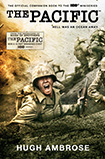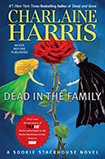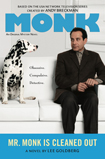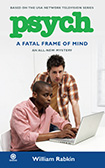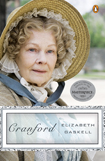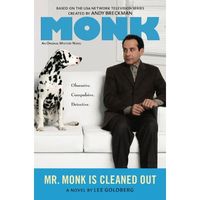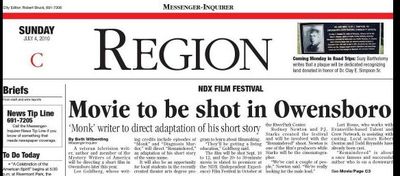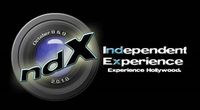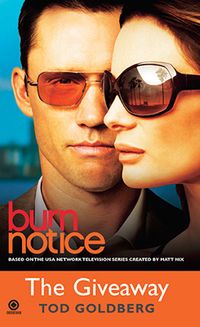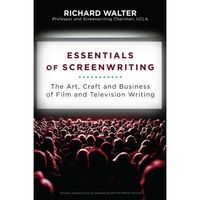 I've adapted a few novels for the screen over the years, and it's always a difficult task. You've got to capture what made the book great, but you've also got to change a lot of things in order to make it work as a screenplay.
I've adapted a few novels for the screen over the years, and it's always a difficult task. You've got to capture what made the book great, but you've also got to change a lot of things in order to make it work as a screenplay.
I always watch movie adaptations with a close eye, hoping to learn from the ones that work and even those that don't. Speaking of learning, I thought I'd pose the question about how to go about adapting a novel for the screen to Richard Walter, who was my professor at UCLA and who has written Essentials of Screenwriting, a fantastic new book that incorporates and expands on his earlier classic, Screenwriting. His response wasn't quite what I expected….
My own screenwriting teacher, USC’s late and legendary Irwin R. Blacker, used to ask his classes the following: “When adapting a novel for the screen, what do you owe the original material?”
He demanded a one-word answer.
The answer: Nothing.
What every writer owes–and it is all that he owes–is the best movie he can write. To whom does he owe that movie?
To the audience.
My first bit of advice to writers contemplating adapting a novel to the screen: Don’t do it.
Instead, write an original screenplay.
I’ve opined in my books and lectures and elsewhere that in my view the most depressing aspect of Hollywood is its refusal in recent years to produce original screenplays. Everything seems to be a remake, a sequel, a prequel, or an adaptation from a novel, a board game, a video game, a comic book, even a toy from Hasbro or Mattel.
When writers ask me about adapting novels, I ask them why they want to do that. Wouldn’t they prefer to create characters and stories of their own invention rather than use another writer’s? Inevitably they tell me that they were hugely, vastly touched by the particular novel, that they found it transporting and transforming.
Consider, however, that if it has so profound an effect upon readers, perhaps that’s its ideal form. Write it as a movie and it’s almost guaranteed to be disappointing.
It’s revealing to consider that many among the finest adaptations have come not from great books but from mediocre ones. The Graduate has to be among my favorite films. How many people have read the Charles Webb novel upon which it is based? Others may disagree, but it is not highly regarded as a piece of timeless literature.
Consider also Kramer Versus Kramer. It’s another brilliant film from a less-than-brilliant novel. How many people have read the Avery Corman novel? Those who have testify that it does not hold a candle to the film.
If a book is really, truly great, then that’s what it wants to be: a book.
Extraordinarily worthy books tend to make lousy movies. Catch 22 or Angela’s Ashes are only two examples.
There is another important reason for writers to avoid writing adaptations: copyright. Why speculate on a script when you do not own the underlying rights?
Some writers option the rights to books they’re adapting, but options eventually expire, don’t they? A studio, impressed with the notion of a particular adaptation, can simply wait out the option period, and then move in and take it over, eliminating the spec writer and bringing in the current hot writer de jour.
Writers can do what nobody else in the business can do: write. From nothing they can create something: a screenplay. Actors can’t do it. Directors can’t do it. Producers can’t do it. Writers alone can do it, and it’s all that they should do.
Notwithstanding any of the above, if you’re nevertheless writing an adaptation, perhaps on assignment for a producer or studio or network, the key is to remember what Professor Blacker preached all those years ago. Your debt is not to the original material but to the audience watching (and paying for) the movie. Remember that you can’t really ruin a novel. If you adapt one into a trashy, useless script, the book still remains unchanged; the letters do not rearrange themselves on the page.
Adaptors should feel free to delete scenes and entire chapters from the book; they should feel equally free to create wholly new material, even invent new characters, if in doing so they create a finer script. They should try at most to capture merely the spirit of the book, if that, and avoid becoming a slave to the facts and data contained in the original pages.
I've been in both positions…I have been assigned books to adapt by a studio or network and I have optioned books myself and written spec adaptations. So far, both scenarios have worked out very well for me (though Richard Walter's cautions about the pitfalls of optioning books yourself are very true and valid concerns).
When I take on an adaptation, I basically follow the advice that Richard just shared…I make whatever changes are necessary to stay true to what worked for me in the book but to make it play as a movie. That often means stripping out subplots, compressing events (the classic example is Six Days of the Condor becoming the move Three Days of the Condor), removing characters or "merging" them into a new one (one example: James L. Brooks took three boyfriends in the book Terms of Endearment and made them into one wholly new one, played by Jack Nicholson), adding new characters (or sparing those who died in the books), and changing the third act (as Scott Frank did with Get Shorty).
As an author myself, I also feel a need to make the author happy, which is not something I should really be thinking about in the adaptation process. Most likely, you are bound to piss them off with your changes. So far, though, I've been lucky. All the living authors whose work I've adapted have been very pleased with the results…in many cases, they've told me they wish they could go back and make the same changes in their books, which is enormously flattering.

